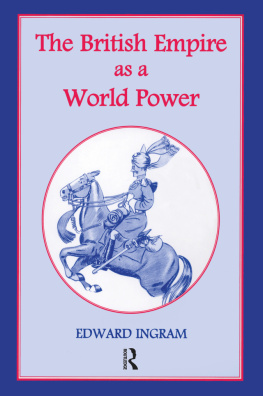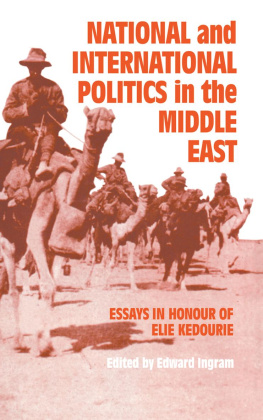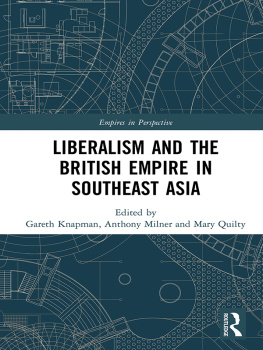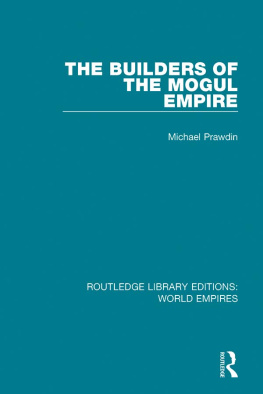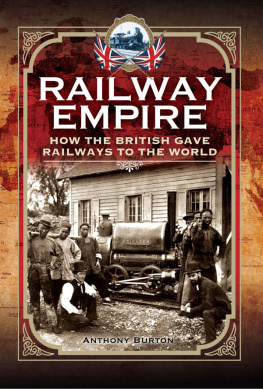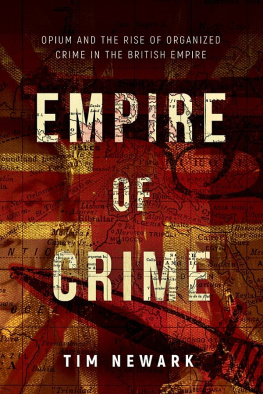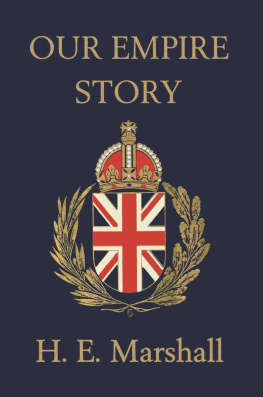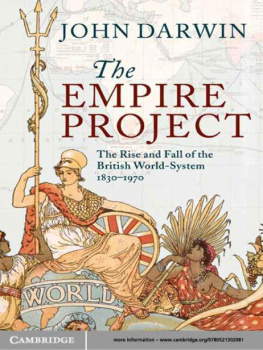EMPIRE-BUILDING AND EMPIRE-BUILDERS
By the Same Author:
COMMITMENT TO EMPIRE:
PROPHECIES OF THE GREAT GAME IN ASIA, 1797-1800
BRITAIN'S PERSIAN CONNECTION, 1798-1828:
PRELUDE TO THE GREAT GAME IN ASIA
THE BEGINNING OF THE GREAT GAME IN ASIA, 1828-1834
IN DEFENCE OF BRITISH INDIA: GREAT BRITAIN IN THE MIDDLE EAST, 1774-1842
As Editor:
NATIONAL AND INTERNATIONAL POLITICS IN THE MIDDLE EAST: ESSAYS IN HONOUR OF ELIE KEDOURIE
TWO VIEWS OF BRITISH INDIA: THE PRIVATE CORRESPONDENCE OF MR DUNDAS AND LORD WELLESLEY, 1798-1801
Empire-Building and Empire-Builders
Twelve Studies
by
Edward Ingram
Professor of Imperial History at Simon Fraser University
First published in 1995 in Great Britain by
Routledge
2 Park Square, Milton Park,
Abingdon, Oxon, OX14 4RN
and in the United States of America by
Routledge
270 Madison Ave, New York NY 10016
Transferred to Digital Printing 2007
Edward Ingram 1995
British Library Cataloguing in Publication Data
Ingram, Edward
Empire-building and Empire-builders:
Twelve Studies
I. Title
909.0971241
ISBN 0-7146-4612-1
Library of Congress Cataloging in Publication Data
Ingram, Edward
Empire-building and empire-builders: twelve studies /
by Edward Ingram
p. cm.
Includes index.
ISBN 0-7146-4612-1
1. Great BritainColoniesHistoryCase studies.
2. ImperialismGreat BritainColoniesHistoryCase studies.
1. Title
DA16.154 1994
325.341dc20 94-13518
CIP
All rights reserved. No part of this publication may be reproduced in any form or by any means, electronic, photocopying, recording or otherwise, without the prior permission of Routledge.
Cover illustration from Frank Wilson,
Cecil the Camel (Jonathan Cape, 1948)
Publisher's Note
The publisher has gone to great lengths to ensure the quality of this reprint but points out that some imperfections in the original may be apparent
To
Ruth Baldwin
in memory of the English Gallop
Contents
I am an historian my profession largely consists of speaking ill of the dead.
Hilary Tamar,
The Shortest Way to Hades,
- Add. MSS British Library, Additional Manuscripts
- AE Archives du Ministre des affaires trangres, Paris, Correspondance politique
- BL British Library, London
- cd court of directors of the East India Company
- CO Public Record Office, Colonial Office Records
- EIC East India Company
- Film. MSS British Library, Oriental and India Office Collections, Microfilmed Manuscripts
- FO Public Record Office, Foreign Office Records
- ggic governor-general of Bengal in council
- gicB governor in council at Bombay
- gicM governor in council at Madras
- IO British Library, Oriental and India Office Collections, India Office Records
- KC MSS Hereford and Worcester Record Office, Kentchurch Court Manuscripts
- MSS Eur. British Library, Oriental and India Office Collections, European Manuscripts
- NLW National Library of Wales, Aberystwyth
- PRO Public Record Office Manuscripts
- sc secret committee of the East India Company
- SP Public Record Office, State Papers, Foreign
- SRO Scottish Record Office, Edinburgh
- TVBI Two Views of British India: The Private Correspondence of Mr Dundas and Lord Welles ley, 17981801, ed. Edward Ingram (Bath, 1970)
- USNA United States National Archives, Washington, DC
- WD The Dispatches of Field Marshal the Duke of Wellington, ed. Lt.-Col. Gurwood (London, 1837)
- WND Despatches, Correspondence, and Memoranda of Field Marshal Arthur, Duke of Wellington, ed. duke of Wellington (London, 186778)
- WO Public Record Office, War Office Records
- WSD Supplementary Despatches and Memoranda of Field Marshal Arthur, Duke of Wellington, ed. duke of Wellington (London, 185872)
HERE FOLLOW TWELVE tales of 'a once magnificent, proud Empire, glorious in bearing, mighty in deed, vibrant with life and energy, splendid in ceremony, apparently invincible, stretching from shore to shore'. The words are taken from the first volume of the autobiography of Dr Peter H. L. Wee, the father of one of my recent postgraduate students, whose own father worked for the NAAFI until the fall of Singapore to the Japanese, and who grew up accepting the British presence without question, 'jubilantly' celebrating Empire Day. At the Presbyterian Boys School in Singapore in the 1950s, the junior choir learned 'The Ash Grove', 'John Peel', 'The Lincolnshire Poacher', and 'Dear Land of My Fathers'. 'These gushed out from thirty throats - Chinese, Malay, Indian, and Eurasian with zeal and gusto at each music session. The incongruence of the situation Asians singing English songs did not strike us at all, for were we not after all children of the British Empire?' Yes, we were. We sang the same songs at my junior schools in Darjeeling and Macclesfield and we, too, performed Lady Precious Stream.
Empires are in disgrace at the moment; done down by criticism of the Spaniards and their formerly great adventurer, now reprobate, Christopher Columbus. The city council here refused last year to celebrate the arrival of Captain George Vancouver, who gave the city its name, for fear of offending the local Indian peoples whose ancestors lived in the area before he arrived. But why should Indians take offence? Whatever one thinks of Vancouver's visit, the city's history would have been very different, had he not come. Vancouver today is a fine Western city, well-equipped with European and American amenities. Why else do so many people flock here from every part of Africa and Asia? And why are we to pretend otherwise?
The history of the British Empire is bound to bounce back, for whatever one's perspective, one can hardly explain anything of significance in the modern world while ignoring it - perhaps why Marx and Engels, too, chose to live there. And one must hope that the idea of empire will bounce back, too, and the United States survive. How can anyone watching nightly on the television the events in Bosnia-Herzegovina not mourn for Austria-Hungary, and anyone who can still face another dose of the horrors of the Middle East not mourn for the Ottoman Empire. I mourn. I abhor nationalism in all forms, whether Ronald Reagan's American variety, Margaret Hilda Thatcher's British, Zionist, or Pan-Arab. The only patriotism worth celebrating is loyalty to an institution - like my fatherland, the Indian Empire - that transcends one's own group, offers and demands detachment rather than passion, to mediate between groups rather than to win victories for any one, and, if necessary, to impose a culture slightly alien to all. Even an imperial dynasty was acceptable in the British Empire before the Saxe-Coburg-Gothas (who called themselves Windsors) became Battenbergs (who call themselves Mountbatten-Windsors). So ashamed were they of the Battenberg name, and rightly so, that one of my favourite cakes had to change its name with them. Battenberg slice - two squares of plain sponge quartered with two squares of pink, stuck together with jam and held together with marzipan became, for a while, Balmoral roll.
To anyone who spent his early years in Calcutta and has lived for many years in Canada, where everybody even the so-called First Nations who are trying to recover aboriginal title to land of which they claim they were unlawfully deprived in a colonial past - pretends that the British Empire never existed, Dr Wee's words must strike a happy note. Colonialism existed, of course, for that colours everything and oppresses us all, but an Empire in which one lived and which commanded one's emotional loyalty, supposedly that never did. Dr Wee's son, Samuel Wee Tien Wang, liked to pretend that he had imagined, until he met me, that his father was alone in the world.


